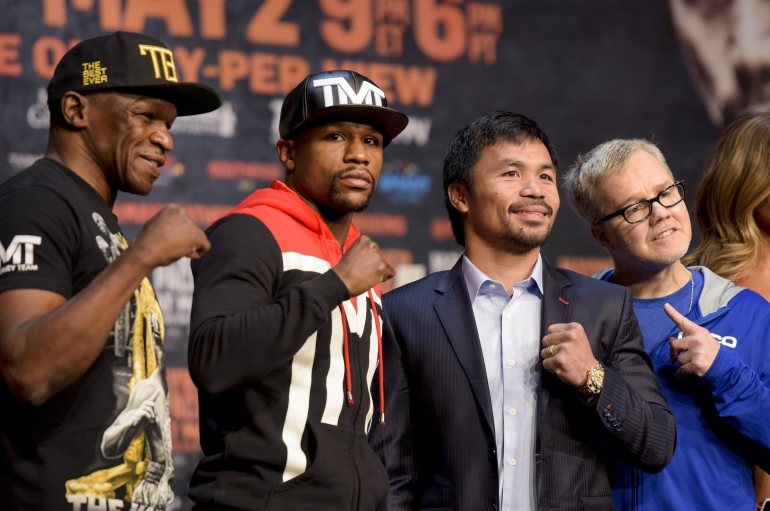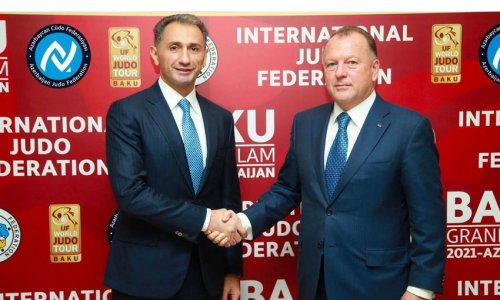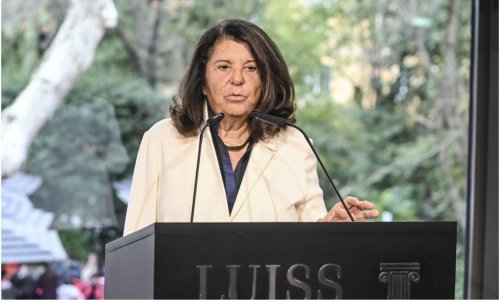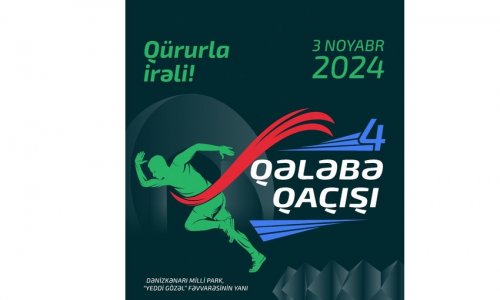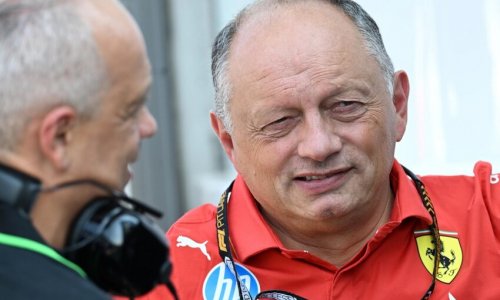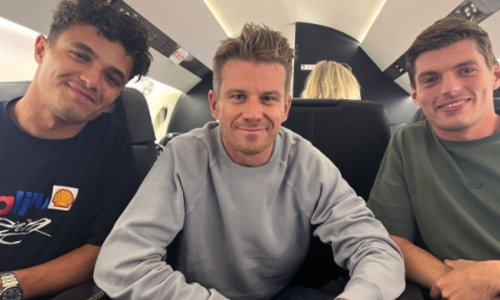It was the mega-fight. Possibly the biggest fight of our lifetimes, a blue-moon opportunity to see two of the world's greatest fighters go toe to toe. It's Ali-Frazier for the modern era, with media coverage dwarfing even that most famous of fights.
It's rare that boxing, that most mercurial of sports, has the opportunity to unify the belts. But the victor in Saturday's much-anticipated bout between Filipino legend Manny Pacquiao and Floyd "Money" Mayweather, now undefeated in 48 professional fights, is the undisputed world champion, and walks away with more than just a share of the reported $300 million purse.
No wonder boxing great Evander Holyfield told CNN's Don Riddell ahead of the fight that he was "excited" for the bout, while other luminaries of the sport are predicting great things from Saturday.
"We should see a classic fight on a classic night," predicted former light heavyweight champion Antonio Tarver. "It should go down in boxing folklore as one of the greatest fights of all time."
And while the actual fight may not have had the excitement that its billing promised, or the knockout that Manny's fans hoped was just around the corner, it was a masterful display by Mayweather and it will enter the annals as one of the most significant boxing events of recent years.
Gone in 60 seconds
Tickets for the event sold out in one minute, and the fight generated somewhere upward of $400 million.
But now the lights at the MGM Grand in Las Vegas have gone out. So has the sport have received a shot in the arm, or will Pacquaio-Mayweather be looked at by sports historians of the future as the high-water mark of the sport?
"The fight should've happened five years ago, when these two boxers were in their prime, when this could've developed into an (ongoing) rivalry, that it could've been some sort of a franchise that could've built (interest in) the sport," says Bob Dorfman, who is the executive creative director of the Baker Street advertising agency and author of the "Sports Marketer's Scouting Report."
In the fractured, factional world of boxing, there is no logical path for champions to come together; this took a meeting courtside at a basketball game, and the will of both fighters, for the chips to finally fall into place.
Competition bearing down
We are a world away from the "Four Kings" era of Sugar Ray Leonard, Thomas Hearns, Roberto Duran, and Marvelous Marvin Hagler, the main draws of the 1980s, or of the boxing climate of the 1990s when boxing produced a showreel of household heavyweights -- some villains, some heroes.
Today's boxing lacks any real personalities bar Mayweather and Pacquiao, says Dorfman, and the sport has suffered, particularly since the high-octane, almost-literally no-holds-barred Mixed Martial Arts bandwagon showboated into town, which has, he says, captured the interest of younger fans.
And when they do decide to hang up their gloves -- Pacquiao is 36, and Mayweather is 38, with one fight to go, in September -- there are worries about where the next superstars will come from, the next men with the personality, technique and skill of a Manny or a Mayweather.
True, the loquacious Keith Thurman Jr. or the hard-hitting heavyweight Anthony Joshua might light up a boxing fan's face, but they certainly don't have the widespread recognition that Saturday's duo has, and their headline fights are unlikely to whip casual fans into a frenzy.
"This (weekend's fight) is a one-off," said Dorfman ahead of the bout. "If anyone is thinking that this is going to turn the sport around, it isn't going to happen."
For the good of boxing
Some are optimistic that the mega-event will re-elevate boxing to its former, giddy heights.
"We're all hoping it (lives up to the hype) because it's good for the sport; it just reinforces that it's a sport to be reckoned with but that's up to the two fighters," Fred Sternberg, President of Sternburg Communications and a member of the Pacquiao camp, told CNN in the days leading up to fight night.
"It's a shame that this has taken so long to happen but if it lives up to the potential I think it's a great shot in the arm and a great impetus for boxing to return to where it has been in the past."
British boxing pundit Steve Bunce says the success of the event shouldn't be measured in how much it generates in revenue, but its legacy.
"What's happened over the last four or five years in America is that everything (in boxing) has been focused on (this) fight," he says.
"Hopefully when the dust settles a couple more million people who took up the pay-per-view will be reminded that it's a good sport for a Saturday night. Let's hope. There are some good title fights coming up in the next six weeks but if they dip under the radar then this fight has done nothing but be a ridiculous financial success."
Carrying the torch a little longer?
So, in the absence of any real contenders for either Manny or Money's place in the sport, could these two fighters, at the end of it all, carry the sport for a little while longer?
CBS chairman Leslie Moonves, who was perhaps more instrumental in getting the fight signed than anyone else, was asked by Sports Illustrated if he had plans to negotiate a rematch.
"I don't even want to think about that," he said.
(CNN)
www.ann.az
Follow us !

